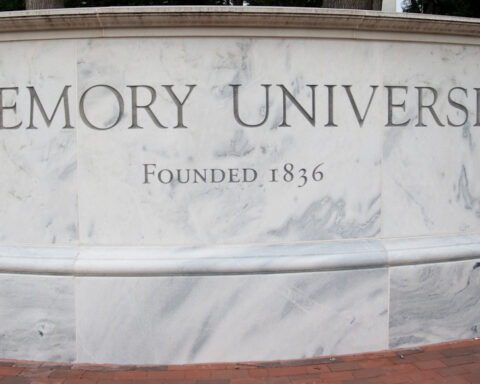Simplifying Georgia’s dual enrollment program is the key to making it financially sustainable, a former school counselor who now runs a private counseling business told state lawmakers Tuesday.
“Until we can get to the clarity piece, we’re never going to have improvement,” Jill Oldham, co-owner of South River Counseling and Consulting in Conyers, told members of a joint legislative study committee looking for ways to ensure the future stability of what is widely considered a successful program. Oldham was appointed to the panel by Gov. Brian Kemp.
The General Assembly created the study committee this year not only to develop recommendations for making the dual enrollment program financially sustainable but to accelerate the movement of high school students earning credit for taking college courses into high-demand careers.
An issue driving the formation of a study committee is the dual enrollment program’s cost, which peaked at $105 million in fiscal 2020 before declining to $76 million this year. The General Assembly sought to rein in those costs by passing legislation in 2020 capping the program at 30 hours.
On Tuesday, the study committee discussed a series of recommendations expected to emerge in its final report later this fall, including removing the current three-year sunset on the dual enrollment program, increasing funding to hire more high-school counselors and technical college instructors, and establishing a central point for data sharing.
But much of Tuesday’s meeting focused on the need to more clearly structure each of the program’s 18 high-demand career pathways so students know exactly what courses they need to take to qualify for the jobs they’re interested in and don’t waste time and money on irrelevant courses. Legislation then-Gov. Nathan Deal steered through the General Assembly in 2014 offers full technical college tuition coverage for students who pursue careers in any of those 18 high-demand fields.
Greg Dozier, commissioner of the Technical College System of Georgia, said the state’s technical colleges have entered into 18 “articulated agreements” with the University System of Georgia – all in high-demand careers – that allow technical college students to transfer to a four-year state college or university after two years without losing credits. In addition to those 18 agreements, which apply statewide, local technical colleges have worked out 35 articulated agreements with nearby four-year schools that just apply locally, he said.
“If we want our kids to get into the workforce as quickly as possible … articulation is a key,” he said.
State Sen. Matt Brass, R-Newnan, one of the committee’s co-chairmen, said the technical college system should not consider expanding the number of high-demand careers beyond 18 without defining what “high-demand” means.
“If we add something every time the political winds shift … at some point, it’s not going to be sustainable anymore,” he said.
But Dozier said holding the line on high-demand careers, or even reducing the number, to save money is easier said than done because Georgia has such a wide variety of workforce needs.
“It seems like everything we train on is in high demand,” he said. “It’s going to be hard to shrink it versus to grow it.”
Brass said simplifying the process school counselors, students and parents must navigate to sign up for dual enrollment is critical if local school systems are to buy in to the program.
“It’s hard to buy into something you don’t understand,” he said.
The study committee plans one final meeting to further discuss and adopt recommendations for the full General Assembly to consider during the 2024 legislative session starting in January.
Disclosure: This article may contain affiliate links, meaning we could earn a commission if you make a purchase through these links.







